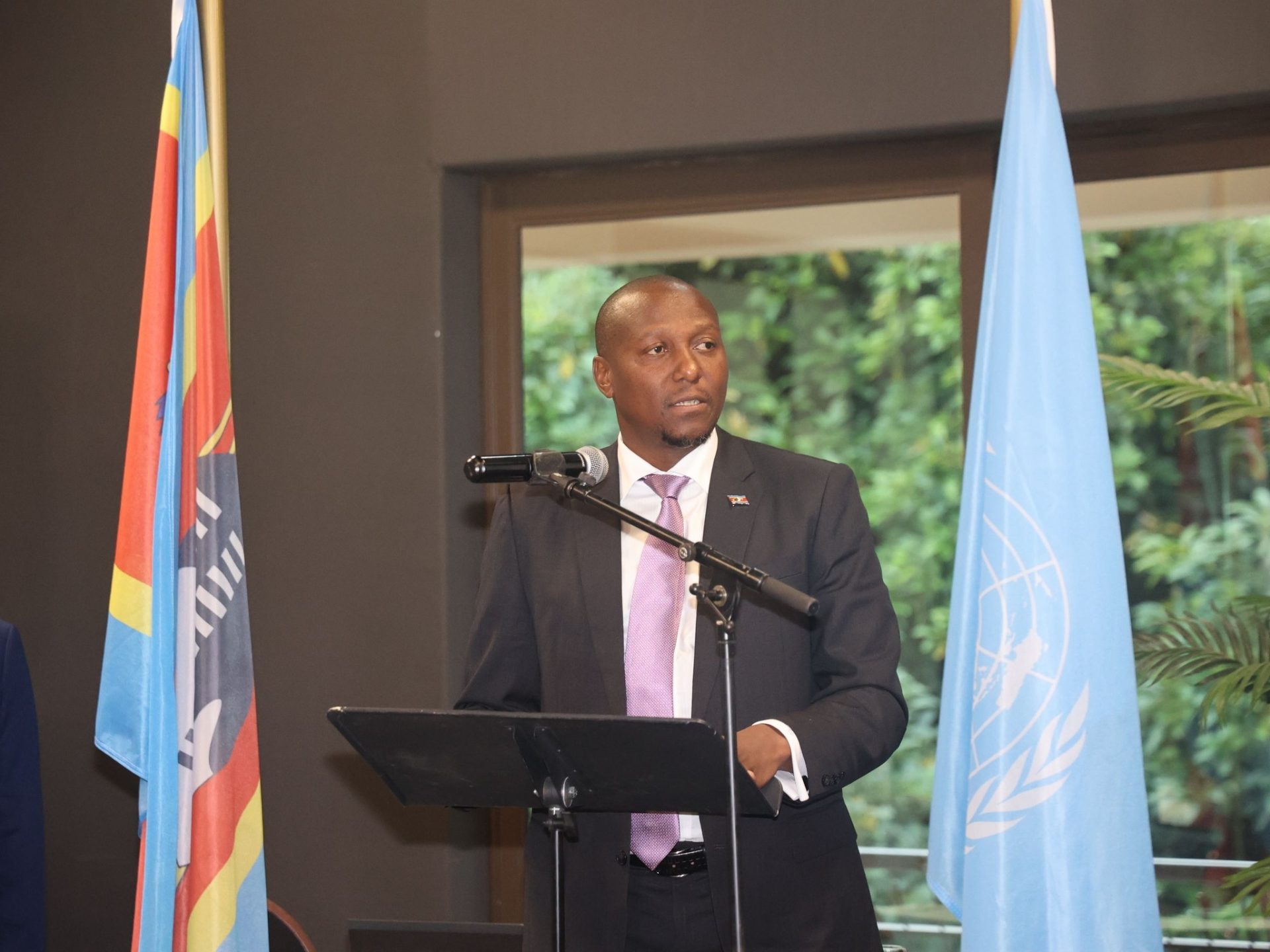By Ncaba Ntshakala
The Kingdom of Eswatini has outlined ambitious plans to reform its public service and enhance governance, positioning itself for sustainable development in alignment with global standards.
This vision was articulated by Prime Minister Russell Dlamini during the UN-Eswatini Government Dialogue for the 2026-2030 United Nations Sustainable Development Cooperation Framework (UNSDCF).
In his address, Prime Minister Dlamini underscored Eswatini’s commitment to establishing a modern, world-class public service that prioritizes efficiency, inclusivity, and transparency.
He emphasized that transforming public service and governance is not only a national priority but also a cornerstone of the country’s broader development agenda.
“Building a modern, world-class public service is at the heart of our development agenda,” Dlamini said.
“By adopting global best practices and strengthening partnerships with international institutions and the private sector, we will ensure a skilled and capable public service that is focused on excellence and delivers efficient, transparent, and timely services to all citizens.”
He further elaborated on the importance of preserving Eswatini’s cultural heritage, asserting that the Kingdom’s governance system, rooted in Swazi traditions, remains a unifying force.
Discussions at the People’s Parliament reinforced the need for emaSwati-led governance structures, such as the Tinkhundla System, to uphold national identity and self-determination.
Equity emerged as a central theme in Dlamini’s address, with the Prime Minister pledging to ensure equal access to education, healthcare, and infrastructure across all regions.
He cited the importance of empowering marginalized groups, including women, youth, and persons with disabilities, as a critical component of the nation’s developmental goals.
On the subjects of education and health, Dlamini emphasized their vital role in Eswatini’s human capital development.
While the introduction of free primary education has broadened access, the Prime Minister noted the urgent need to transform the educational system to equip youth with 21st-century skills.
“This includes integrating vocational and tertiary education aligned with global economic demands and incorporating Swati governance principles into curricula to preserve cultural traditions,” he explained.
Similarly, he stressed the necessity of reforming the healthcare system to address challenges such as inadequate medicines, staff shortages, and service delivery gaps.
“Our goal is universal access to quality healthcare—turning this aspiration into reality through an overall and comprehensive education system analysis for a multisectoral approach for improved quality,” Dlamini added.
Economic transformation and job creation were also key priorities outlined by the Prime Minister.
RELATED: Prime Minister highlights mining sector as pillar of economic growth
He described economic growth as essential for eliminating poverty, creating employment opportunities, and generating the resources needed to invest in social sectors.
Eswatini’s strategy for driving inclusive growth involves creating a business-friendly environment that attracts investment, strengthens industrialization, and supports key sectors like agriculture, infrastructure, manufacturing, and services.
“Achieving energy security, diversifying the economy, promoting trade and export-oriented strategies, and encouraging active private-sector participation is vital for unlocking foreign direct investment, boosting job creation, and empowering marginalized groups,” Dlamini stated.
Innovation and technology were identified as pivotal to the country’s economic transformation.
The Prime Minister outlined plans to invest in digital infrastructure, advance technological developments, and promote a green economy through renewable energy and sustainable practices.
He emphasized the importance of reducing reliance on external sources to ensure long-term stability while enhancing a government-led, business-ready environment to attract significant investments.

Furthermore, vocational training, STEM education, and policies supporting entrepreneurship will be prioritized to empower the youth, ensuring they play a crucial role in Eswatini’s future prosperity.
Turning to food security, Dlamini acknowledged agriculture as the backbone of Eswatini’s economy. He revealed plans to achieve food sovereignty within the next 15 years by investing in sustainable farming, irrigation, and agricultural innovation.
“By empowering farmers, communities, and the private sector, we aim to build a resilient food system that feeds our nation, creates jobs, and drives rural economic growth,” he said.
The Prime Minister also highlighted the need to view agriculture beyond food security, recognizing it as a key driver of economic growth and opportunity creation.
RELATED: Prime Minister visits Minsk Dairy Plant No.1 in Belarus
Addressing the climate-related challenges that have plagued the Kingdom, Dlamini discussed the millions of Emalangeni spent on restoring infrastructure and rebuilding homes destroyed by storms and torrential rains.
He expressed the government’s commitment to strengthening disaster preparedness and management. “Acknowledging the urgency of climate change, we will prioritize renewable energy, enhance natural resource management, and implement disaster preparedness strategies,” he said.
Dlamini stressed that environmental sustainability would remain central to Eswatini’s development goals to ensure that economic growth does not come at the expense of future generations.
Proactive disaster risk reduction, enhanced early warning systems, and community resilience-building will be key to reducing vulnerability to disasters and emergencies, he added.
In closing, the Prime Minister made emphasis on Eswatini’s determination to address its most pressing challenges through strategic partnerships, innovation, and a commitment to equity.


